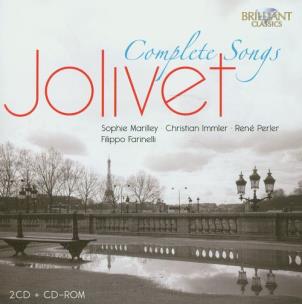- Regulamin
- Koszty dostawy
- Kontakt
- Dziś w ofercie 233 997 produktów
KSIĄŻKI
- Albumy
- Beletrystyka
- Biografie
- Dla dzieci i młodzieży
- Edukacja
- Ekonomia i biznes
- Ezoteryka
- Historia
- Informatyka
- Kalendarze
- Komiksy
- Kryminał i sensacja
- Kultura i sztuka
- Literatura faktu
- Literatura kobieca
- Literatura piękna
- Medycyna
- Nauka języków obcych
- Nauki humanistyczne
- Nauki przyrodnicze
- Nauki ścisłe
- Podręczniki
- Poradniki
- Prawo i administracja
- Przewodniki i podróże
- Psychologia
- Religia
- Sport
- Technika
- Zdrowie i uroda
ZABAWKI
- Artykuły dla niemowląt
- Bączki
- Bujaki i skoczki
- Ciągnij / pchaj
- Dla niemowlaka
- Grzechotki i gryzaki
- Karuzele i pozytywki
- Maty i centra zabaw
- Projektory i lampki
- Sortery i piramidki
- Zabawki
- Edukacyjne i kreatywne
- Figurki
- Klocki
- Lalki
- Pojazdy
- Pluszaki i maskotki
- Sport i rekreacja
- Zabawa w dom
- Zabawki drewniane
- Puzzle
- Do 200 elementów
- 201-500 elementów
- 501-1000 elementów
- Ponad 1000 elementów
- Puzzle 3D
ART. PAP
- Artykuły biurowe
- Artykuły piśmiennicze
- Bloczki i kartki samoprzylepne
- Dziurkacze
- Kalkulatory
- Nożyczki i nożyki
- Skoroszyty
- Teczki
- Wizytowniki
- Zszywacze
- Artykuły szkolne
- Akcesoria szkolne
- Modelowanie
- Notatniki i zeszyty
- Piórniki
- Plecaki i torby
- Pojemniki na śniadanie
- Pomoce naukowe
- Przybory matematyczne
- Przybory rysunkowe
- Upominki i gadżety
- Akcesoria do książek
- Artykuły balowe
- Breloki i zawieszki
- Drobiazgi, różności
- Kubki
- Oferta Świąteczna
- Papeteria, kartki i naklejki
- Skarpetki Many Mornings
- Upominki
GRY
MULTIMEDIA
- Audiobooki
- Beletrystyka
- Biografie i wspomnienia
- Dla dzieci i młodzieży
- Fantastyka
- Filozofia i religia
- Historia
- Literatura faktu i reportaż
- Poradniki
- Sensacja i kryminał
- Filmy DVD/BD
- Animowane
- Biograficzne
- Fantasy
- Horrory
- Komedie
- Romanse
- Science Fiction
- Sensacyjne / kino akcji
- Thrillery
- Muzyka CD
- Alternatywna
- Blues
- Dla dzieci
- Jazz
- Klasyczna
- Piosenka aktorska i poetycka
- Pop
- Rock
- Świąteczna i kolędy
- Akcesoria GSM
- Głośniki
- Kable i adaptery
- Klawiatury
- Myszy
- Słuchawki
PROMOCJE
ZDROWIE
LEGO

Jolivet: Complete Songs
Wydawca:
Brilliant Classics
ISBN:
5029365922029
EAN:
5029365922029
oprawa:
Plastikowa
format:
14.0x12.0cm
język:
angielski
rok wydania:
2011
(0) Sprawdź recenzje
Opis produktu
Zasady bezpieczeństwa
20th Century French composer André Jolivet was known for his devotion to French culture and this can be clearly seen in his fine mélodies, or French art songs, which combine all the qualities of rich melody and sensitivity to text that are essential requirements for this form. This is the first complete recording of Jolivet's edited Mélodies for solo voice and piano.
Jolivet's Mélodies were composed over almost a quarter of a century (1928-1951) and they cover many different styles and moods, from easy songs inspired by folk tunes to more complex and sophisticated works, some intimate and intense, some humorous or sarcastic. The huge variety he displays reflects his diverse inspiration, from medieval and classical forms to the atonal music of Schoenberg and Berg, as well as Debussy, Fauré and particularly his teacher, the iconoclast Edgard Varese.
Jolivet draws most of his text from French poets through the ages, but some he wrote himself. The Deux poésies de Francis Jammes tell of a heart-breaking love story, where Jolivet transforms intimate sorrow into a bare, chromatic language. By contrast the lively Chewing Gum sparkles with jazz flavour and La mule de Lord Bolingbroke is also a delightful and bubbly work. Other themes are comments on social issues. His tragic experience as a front-line solider inspired Les Trois complaints du soldat, perhaps Jolivet's best-known song cycle, featuring early music forms and a simplicity typical of his war-time compostions. One of Jolivet's most successful cycles, Jardins d'hiver follows the changing moods of a love affair from joy and tenderness in the beginning to disillusionment, bitterness and finally acceptance. As an hommage to Jolivet's muse, the collection is completed with Varese's La grand sommeil noir.
The Mélodies are performed by Sophie Marilley, mezzo-soprano, René Perler, baritone, Christian Immler, baritone and accompanied by the pianist Filippo Farinelli.
About the artist:
Since 2006/07 Sophie Marilley has been appearing as a soloist in the ensemble of the Wiener Staatsoper, performing roles such as Cherubino (Le Nozze di Figaro). At the same time, she was a guest at the Teatro Sao Carlo in Lisbon (Sesto in La Clemenza di Tito) and at the Théâtre Royal de la Monnaie (Cherubino in Le Nozze di Figaro). From 2011/12 on, she will be joining the ensemble of the Staatsoper Stuttgart, starting with roles such as Ruggiero (Alcina), Cherubino (Le Nozze di Figaro) and Junon (Platée). She will also get back to the Monnaie for a new production of Massenet's Cendrillon (le Prince).
CENA:
25,35
zł
Cena detaliczna:
29,90 zł
15%
rabatu
Najniższa cena z ostatnich 30 dni: 25,35 zł
Produkt niedostępny
Uwaga!!!
Ten produkt jest zapowiedzią. Realizacja Twojego zamówienia ulegnie przez to wydłużeniu do czasu premiery tej pozycji. Czy chcesz dodać ten produkt do koszyka?


Wybierz wariant produktu
